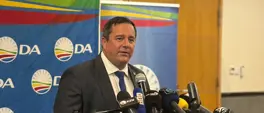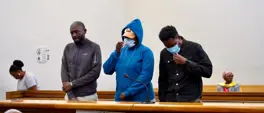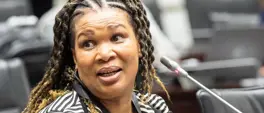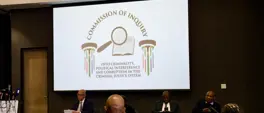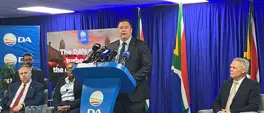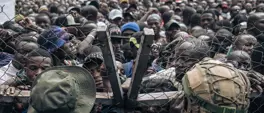'You can’t learn in survival mode': Why trauma-informed teaching is urgently needed in SA classrooms
Celeste Martin
4 May 2025 | 12:19Many children face trauma daily, prompting calls to train teachers in trauma-informed practices that foster safety and healing.
CapeTalk’s Sara-Jayne Makwala King is joined by Dumisani Tshabalala, Head of Academics at Oprah Winfrey Leadership Academy for Girls (OWLAG).
Listen to their conversation in the audio clip below.
From poverty and violence to neglect and grief, everyday children across South Africa are burdened by trauma.
Tshabalala recently penned an article titled: Why are we still training teachers as if trauma does not exist? wherein he stresses that a classroom should be more than a place of learning, but a space of healing.
"So in the classroom, if the stress that I'm inflicting on you as a child it's somewhat similar to what we experience at home, inevitably, the brain will shift into that survival mode and think about the things that happen at home. So as a teacher, I must be able to dose enough stress patterns that are different to what you've experienced at home or before, so that you are not thrown out of the classroom."
- Dumisani Tshabalala, Head of Academics at Oprah Winfrey Leadership Academy for Girls (OWLAG)
Tshabalala advocates for a trauma-informed approach to education, not as a luxury or afterthought but as a necessity.
He outlines a framework that the Oprah Winfrey Leadership Academy for Girls follows, known as the "6 R’s", where lessons should be:
- Relevant to the child’s lived experience
- Rhythmic to engage the natural resonance of the brain
- Rewarding by fostering safe environments
- Repetitive to reinforce key concepts
- Relational to build trust
- Respectful of each child’s dignity
"...as teachers, we must be able to recognise when trauma plays itself out in the classroom...When you're not focusing and something is happening in your mind, I must be seeing that the math, the English, the poetry I'm trying to teach is not happening in your brain. What's happening in your brain now, your brain is playing out the things you're experiencing at home...as teachers, we must resist re-traumatising kids. So by being harsh and not relatable, in fact, you are making kids revisit their trauma. So you must resist re-traumatising kids."
- Dumisani Tshabalala, Head of Academics at Oprah Winfrey Leadership Academy for Girls (OWLAG)
Tshabalala says recognising signs of trauma, like flinching at raised voices or dissociating during lessons, should form part of every teacher's skill set.
He explains that the long-term benefits of adopting trauma-informed practices, are classrooms that will be more emotionally stable, a decrease in behavioural issues and children who are better able to absorb and retain knowledge.
To make this practice widespread, Tshabalala believes the change must start with teacher training.
He suggests that trauma literacy be made a core part of both pre-service education and ongoing in-service development for teachers.
Ultimately, Tshabalala emphasises that trauma-informed teaching is not about turning educators into therapists but about creating environments where children feel safe, seen, and supported.
"What we're advocating for is not something out there that's amazing and new. Any good teacher out there, I can always argue that they are trauma-informed. It's just that they're not aware that what they're doing is actually trauma-informed."
- Dumisani Tshabalala, Head of Academics at Oprah Winfrey Leadership Academy for Girls (OWLAG)
Scroll up to listen to the full conversation
Get the whole picture 💡
Take a look at the topic timeline for all related articles.
